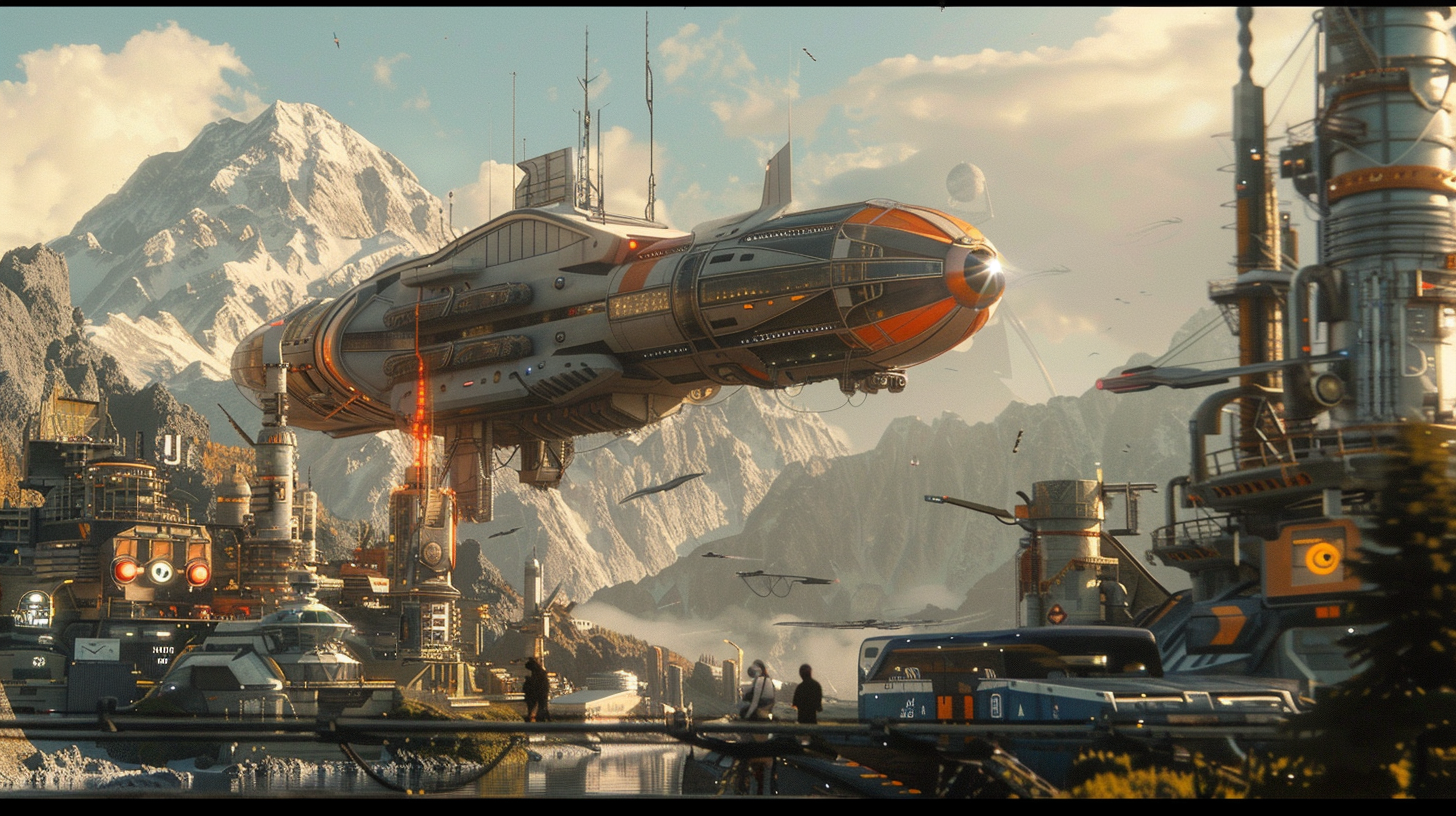Introduction: Science fiction (sci-fi) books offer readers a journey into the future, exploring imaginative worlds, advanced technologies, and speculative concepts. These narratives often address profound questions about humanity, society, and the universe, challenging readers to think beyond the present. By engaging with science fiction, readers can explore the possibilities of what might be and reflect on the implications of technological and scientific advancements. Here, we highlight ten must-read science fiction books that have captivated readers and earned critical acclaim.
Key Characteristics of Science Fiction Books: Science fiction books are characterized by their focus on speculative concepts and imaginative worlds, often involving advanced technologies, space exploration, time travel, and extraterrestrial life. These novels typically blend scientific principles with creative storytelling, creating rich and immersive narratives that challenge readers to think critically about the future and the potential consequences of technological advancements. Science fiction explores themes such as humanity, society, ethics, and the nature of reality, providing both entertainment and intellectual stimulation. The genre employs narrative techniques such as world-building, alternate realities, and speculative scenarios to create a sense of wonder and exploration.
Must-Read Science Fiction Books:
- “Dune” by Frank Herbert: A seminal work of science fiction set in a distant future where noble houses vie for control of the desert planet Arrakis, the source of the valuable spice melange. Herbert’s intricate world-building, complex characters, and exploration of themes such as politics, religion, and ecology have made “Dune” a cornerstone of the genre.
- “Neuromancer” by William Gibson: A groundbreaking novel that introduced the concept of cyberspace and cyberpunk, following a washed-up computer hacker hired for one last job. Gibson’s vivid descriptions, innovative ideas, and exploration of themes such as artificial intelligence and virtual reality have made “Neuromancer” a classic in the genre.
- “The Left Hand of Darkness” by Ursula K. Le Guin: A thought-provoking novel that explores themes of gender, sexuality, and identity through the story of an ambassador sent to a planet where the inhabitants can change their gender. Le Guin’s rich world-building, complex characters, and insightful exploration of social issues have earned it critical acclaim.
- “Foundation” by Isaac Asimov: The first book in Asimov’s epic series about the fall and rise of civilizations, following mathematician Hari Seldon as he predicts the decline of the Galactic Empire and establishes a foundation to preserve knowledge. Asimov’s intricate plotting, grand scope, and exploration of themes such as history and fate have made “Foundation” a must-read.
- “Snow Crash” by Neal Stephenson: A fast-paced and satirical novel set in a near-future America where a computer virus threatens to take over the world. Stephenson’s blend of action, humor, and exploration of themes such as virtual reality and corporate power have made “Snow Crash” a standout in the genre.
- “Hyperion” by Dan Simmons: The first book in the “Hyperion Cantos,” following seven pilgrims on a journey to the distant world of Hyperion, each with their own story and connection to the enigmatic Shrike. Simmons’s complex narrative structure, rich world-building, and exploration of themes such as religion and destiny have earned it critical acclaim.
- “Ender’s Game” by Orson Scott Card: A gripping novel about a young boy trained to lead humanity’s fight against an alien race. Card’s engaging characters, intense battle scenes, and exploration of themes such as leadership, ethics, and the consequences of war have made “Ender’s Game” a beloved classic.
- “Brave New World” by Aldous Huxley: A dystopian novel set in a future society where technology and conditioning control every aspect of life. Huxley’s exploration of themes such as individuality, freedom, and the impact of technology on society have made “Brave New World” a timeless and thought-provoking read.
- “The War of the Worlds” by H.G. Wells: A pioneering work of science fiction that tells the story of an alien invasion of Earth. Wells’s vivid descriptions, suspenseful narrative, and exploration of themes such as human survival and the unknown have made “The War of the Worlds” a classic in the genre.
- “The Martian” by Andy Weir: A gripping and scientifically accurate novel about an astronaut stranded on Mars, using his ingenuity and knowledge to survive. Weir’s meticulous attention to detail, engaging narrative, and exploration of themes such as resilience and human ingenuity have earned it critical acclaim and a dedicated following.
Conclusion: Must-read science fiction books offer readers a rich and immersive literary experience, characterized by imaginative worlds, advanced technologies, and speculative concepts. By engaging with these compelling narratives, readers can explore the possibilities of the future and reflect on the implications of technological and scientific advancements. These must-read science fiction books continue to captivate readers with their masterful storytelling and thought-provoking themes, making them essential reading for anyone interested in the genre.

